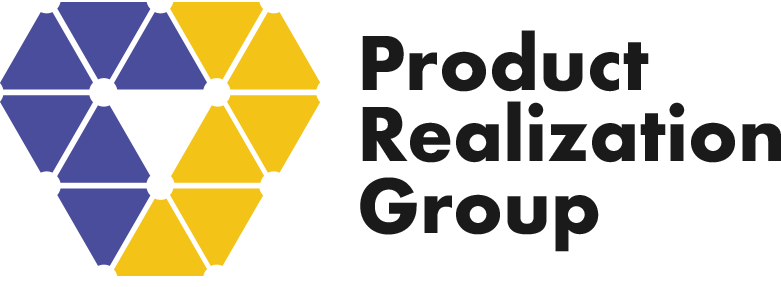
Global supply chains have never been more complex or more costly. While many companies focus on speed and scale, they often overlook import tariffs.
Michael Keer, Product Realization Group’s managing partner recently sat down with global trade expert Deep SenGupta to discuss tariff strategies. SenGupta laid it out plainly: the companies that treat tariffs as an afterthought often pay the steepest price. And not just in duties but in penalties, cash flow, and strategic flexibility.
This isn’t a regulatory issue. It’s a business performance issue.
“We’ll Just Fix It Later” Could Eliminate Your Business’s Cost Advantage
One story SenGupta shared was about a fast-growing aeronautics company that ignored tariff classification during its early prototyping phase. As imports ramped up, so did Customs’ attention. When an audit hit, the company was handed a six-figure retroactive bill plus interest.
Their mistake? Picking harmonized codes based on gut feel and which had the lowest duty rate. No documentation. No research. No due diligence.
The lesson? Even in early stages, tariff strategy must be part of product development. If you wait until you’re scaling, you’re already behind.
Complexity Is the Norm and Strategy Should Be Too
In today’s trade landscape, there’s no such thing as a “simple” import decision. Here’s why:
- Choosing Mexico over China isn’t enough. If your assembly operation doesn’t qualify as “substantial transformation,” you’re still on the hook for China-level tariffs.
- Defaulting to Delivered Duty Paid (DDP) terms with your supplier might seem easy but you’re handing them control over customs valuation, and likely leaving savings on the table.
- Ignoring your ACE data is like ignoring your credit card statement. You can’t optimize what you don’t track.
SenGupta emphasized that customs value isn’t just what you paid, it’s what you declare. And depending on your transaction structure, there may be opportunities to legally reduce that number. That includes first-sale rules, stripping out non-dutiable services, or reviewing related-party transfer pricing.
Tariff Planning Is Supply Chain Resilience
Keer reminded us that many companies are shifting from a “China + 1” model to “China + 2” or complete reshoring. But what separates winners from the rest isn’t just where they move, it’s how strategically they plan.
That means:
- Running tariff impact assessments across your sourcing footprint
- Exploring duty drawback programs for goods that are exported or scrapped
- Evaluating bonded warehouses or foreign trade zones to defer duties
- Auditing your tariff classification for errors and opportunities
These are not just compliance activities, they are levers for a competitive advantage.
Strategy Isn’t Optional Anymore
Tariff strategy isn’t just for big companies with legal teams and customs brokers on retainer. It’s for every business that imports goods and wants to stay profitable.
As SenGupta said, “Customs will catch up with you. Maybe not today. Maybe not tomorrow. But when they do, you’ll wish you’d started this work earlier.” So don’t wait.
Make tariff strategy part of your product lifecycle, supplier decisions, and go-to-market plans before it becomes an expensive fire drill. Get in touch or take our free Supply Chain assessment to learn more.
Want Expert Guidance?
Get expert advice on supply chain strategy, contact Product Realization Group or DSG Global.
Meet the experts
Deep SenGupta, Founder and CEO of DSG Global
Prior to founding DSG Global in 2014, Deep was at FedEx from 2002-2014 where he was the Principal of FedEx’s regulatory consulting group providing international trade regulatory consulting to numerous entities. Deep was also responsible for providing international trade services to governments on a global basis.
Prior to joining FedEx, Deep was with KPMG’s Asia Pacific Tax practice from 1997 where he helped establish KPMG’s International Trade & Customs practice in India and advised several Fortune 500 clients on market-access issues for their South-Asian operations.
Deep has also assisted the US Government agencies involved in both imports as well as exports, as a subject matter expert.
Michael Keer, Founder and Managing Partner, Product Realization Group
Michael Keer has over 30 years of high technology New Product Introduction experience in development and manufacturing. As founder of the Product Realization Group (PRG), Michael created a solutions based team of consultants that help companies make the leap from concept to full market scale. We are a mission driven company dedicated to helping companies bring products to market that positively impact both people and the planet. Our clients include medical device, consumer electronic, and high-technology start ups, SMBs, and large companies such as Intuitive Surgical, Mentor Graphics, and NTT. Prior to the PRG, Michael served in senior management roles at SofTEQ, Paramit Corporation, SemiPower Systems, and Ericsson, where he supported bringing over 100 new products to market in both OEM and CM environments.
Michael received a B.S. in Industrial Engineering and Masters in Manufacturing Engineering from Northwestern University, and has mentored at Stanford University’s StartX, Berkeley Foundry, and Lemnos Labs. He is currently a mentor at the CleanTech Open and Sustainable Ocean Alliance. He has lectured at Stanford University, Northwestern University, Santa Clara University, SME, IEEE, ASME, and Lawrence Livermore National Labs.
Related Resources
- Switching Contract Manufacturers: Essential Strategies for Mitigating Supply Chain Risk
- Strategic Supplier Shift Assessment for At-Risk Manufacturers
- Supply Chain Resilience Risk Assessment Assess your supply chain risk level and identify areas for improvement.
- How to Reduce Tariff Costs and Strengthen Your Supply Chain
- Can you avoid tariffs by moving your factory?


